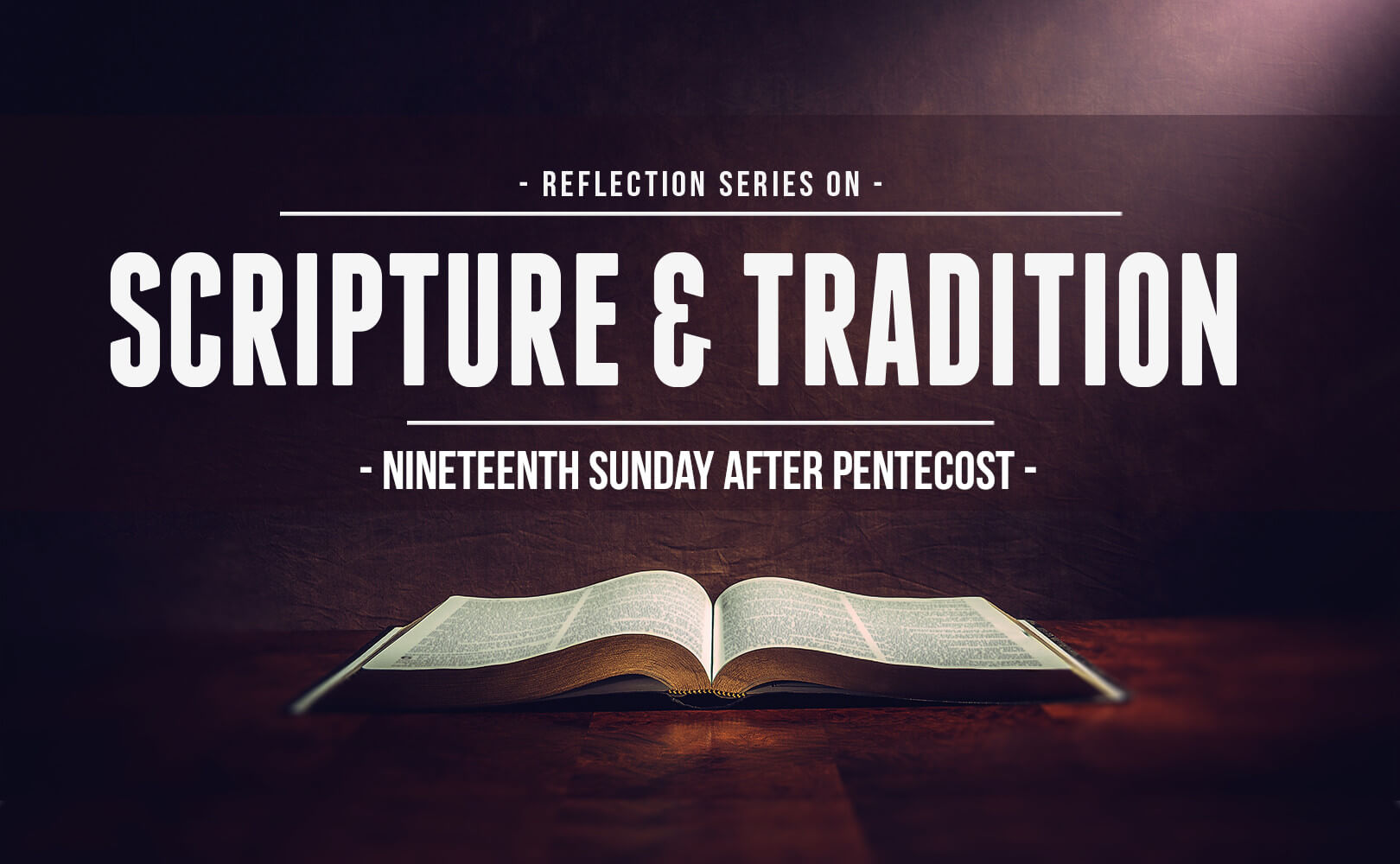Epistle: Ephesians 4:23–28
Gospel: Matthew 22:1–14
Almighty and merciful God, in Thy goodness keep us, we beseech Thee, from all things hurtful; that we, being ready both in body and soul, may accomplish those things which belong to Thy service.
—From the Collect for the Nineteenth Sunday after Pentecost
Sunday’s Gospel presents one of Our Lord’s most mysterious parables: the Parable of the Wedding Feast. Jesus tells of a king who hosts a marriage feast for his son. First he invites “them that were invited” — the high-ranking men and women of his kingdom, most likely. But being too busy, they do not come. The king has them killed and then invites anyone and everyone; he tells his servant to “go … into the highways” and invite all he can find. At the feast, however, is a man who doesn’t have a wedding garment; the king sees him and has him thrown out.
What does this parable mean?
The first guests are those who put the cares of this world before faith in Jesus Christ. This is the mass of humanity, who set their sights on earthly things rather than heavenly things. Our Lord told us to “seek ye therefore first the kingdom of God, and his justice, and all these things shall be added unto you” (Mt. 6:33). God demands our complete discipleship, and he demands we put Him before all things; we cannot serve both God and mammon (cf. Mt. 6:24). Further, this parable is a dire warning for anyone who puts his earthly life before his soul: “when the king had heard of it, he was angry: and sending his armies, he destroyed those murderers and burnt their city” (Mt. 22:7). Eternal damnation is the result of those who reject Christ.
Who are those whom the king invites next? They represent the baptized; those who enter into the feast (the Church) and partake of its food (the Eucharist). The imagery that Christ uses to represent the baptized should be humbling to us all: we are just random people on the street; it’s not due to any personal attributes we possess that we are invited. The focus therefore is on the king, who invites us in spite of our nothingness. We don’t deserve entrance into the feast, but the king in his abundant graciousness allows us to enter.
And what about the man who is kicked out because he doesn’t have a wedding garment (Mt. 22:12–13)? St. Gregory the Great explains:
What do we think is meant by the wedding garment, dearly beloved? For if we say it is baptism or faith, is there anyone who has entered his marriage feast without them? A person is outside because he has not yet come to believe. What then must we understand by the wedding garment but love? That person enters the marriage feast, but without wearing a wedding garment, who is present in the holy church. He may have faith, but he does not have love. We are correct when we say that love is the wedding garment because this is what our Creator himself possessed when he came to the marriage feast to join the church to himself. (Forty Gospel Homilies 38.9)
Our Lord is warning those who are baptized that they must respond to that baptism, and the fitting response is love. If we do not love God and our neighbor, then our baptism will not save us from the same fate as those who declined the invitation. St. Paul explains in Sunday’s Epistle how to avoid that fate: “Be renewed in spirit of your mind: And put on the new man, who according to God is created in justice and holiness of truth” (Eph. 4:23–24). We must become new creations, living no longer for ourselves, but for others. By performing acts of charity, we put on the wedding garment for the feast.
The Parable of the Wedding Feast urges us to look after the salvation of ourselves and of others. We must invite those who have not yet entered the feast (the unbaptized) to enter the Church. Further, we must urge those at the feast to put on their wedding garments, which are acts of love, and we must do so as well. Otherwise, we risk being “cast into the exterior darkness [where] there will be weeping and gnashing of teeth” (Mt. 22:14).


